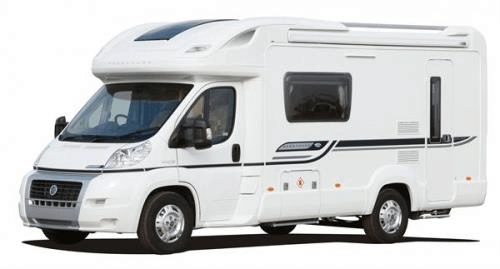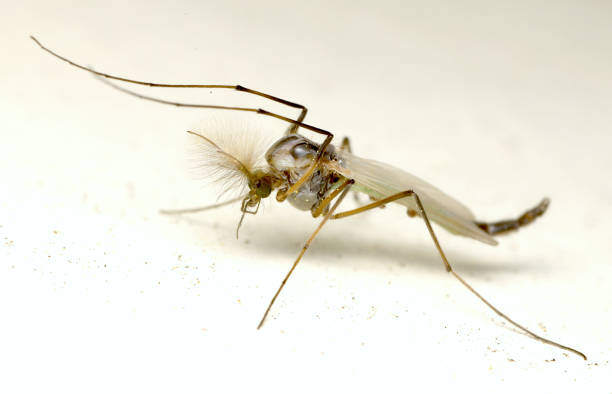Your motorhome is more than just a vehicle; it’s your ticket to adventure, a cosy home on wheels,...
Are you planning your next outdoor adventure, but worried you might be pestered by midges? These tiny insects, of which there are over a thousand different species, can quickly turn a camping trip into an itchy ordeal. But fear not! With the right strategies, you can keep midges at bay and enjoy the great outdoors in peace. Read on, then, to find out how to do midge-free motorhoming…
Midges are small flies that are attracted to humans, pets and livestock thanks to the carbon dioxide we all emit, our body heat and the particular scents we make. They’re pretty small and look harmless, so why do they get quite a bit of airtime, you might ask? Well, they are annoying when they swarm around you, some types bite (especially the Scottish Highland Midge when pregnant - oo-er) and they use our blood as a source of food so that they can continue to lay their eggs. The midge bite can also be painful, and then itchy, due to the anticoagulant they pump into your system. Yikes.

Midges like damp, close weather and often congregate around water. They appear in the warmer months, and - I don’t know if you’ve ever been to Scotland between May and September - they can be prolific in numbers. I remember once being at a wedding in Mull in May and it felt like we were under attack from an army of the little blighters. The festivities even moved indoors because of them. But I digress…
So, how to defeat the maddening midges…
Choose your pitch wisely!
Select a campsite away from stagnant water sources, as midges lay their eggs in the damp soil and also breed in damp areas. They love hiding out in tall grass and vegetation, so pitch up somewhere with low grass. Opt for campsites with higher elevations, or stay by the coast, as midges are less prevalent in windy and elevated locations because they can’t cope with the associated conditions. Ha.

Check your timing
Midges are most active during dawn and dusk, so plan your activities accordingly, and consider doing your indoors activities during peak midge activity times.
Dress to un-impress
Wear long-sleeved shirts, trousers and socks to minimise your exposed skin. Additionally, consider clothing treated with insect repellent or permethrin, which can provide added protection against midges. Interestingly, they prefer dark colours to light ones, so maybe dressing head to toe in camouflage is not the answer.

Use insect repellent or natural remedies
Apply insect repellent to exposed skin, paying special attention to areas such as ankles, wrists, and neck, where midges tend to bite, and reapply according to the instructions. Some campers swear by natural remedies such as citronella candles, and lemon, eucalyptus or lavender oil to deter midges. While not as potent as chemical repellents, these alternatives would likely provide some relief.
Create some distance
Set up a fine mesh mosquito net around your camping area, especially around your sleeping quarters, as this physical barrier can help prevent midges from entering your personal space. Don’t leave the doors/windows open, and fit fine mesh screens or fly screens over your windows, vents and doors to prevent midges from entering your motorhome (while still allowing for ventilation).
Smoke ‘em out
Midges are deterred by smoke, so consider using a campfire or portable smoke device to create a smokescreen around your camping area.

Use the shower facilities
Midges are attracted to body odours and sweat, so maintaining good hygiene can help reduce their attraction to you. The opposite to humans, then. Shower regularly, use unscented products, and avoid wearing heavily-scented body lotion or perfumes. Basically, don’t be smelly or smell too nice!
Dim the lights
Midges are drawn to bright lights, so minimise the use of bright lights at night. Get some dimmer lights or use red-coloured bulbs, which are less attractive to midges.
Blow them away
Get yourself a plug-in fan that you can set up outside, by your seating area. Midges can’t cope with gusts of wind which are more than 5mph, so they won’t like air that’s blown from the fan.
After all that, if they persist and you can’t get rid of them, just try to ignore them and enjoy being outdoors. Eating lots of garlic can apparently help, too, and I’m sure a nice glass of Sauvignon Blanc might assist to wash it down (if only to take your mind off them). Good luck!







